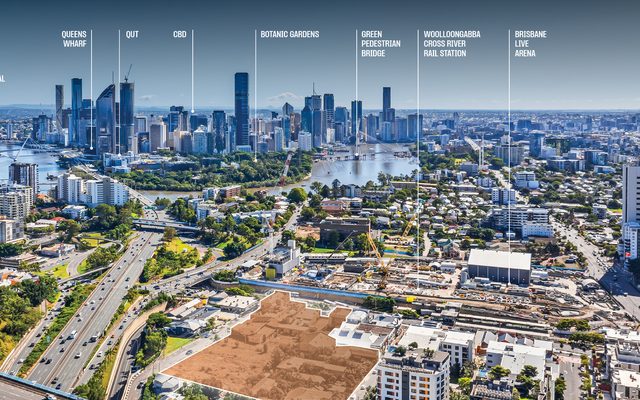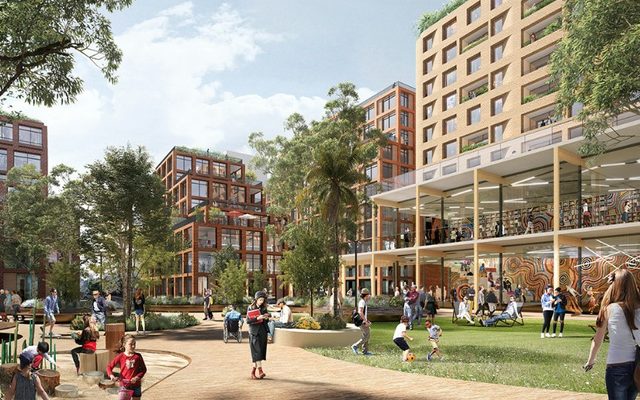This article is from the Australian Property Journal archive
LARGE-scale events like the Olympic and Paralympic Games will cause displacement of existing populations without early interventions to prevent rising rental costs and ensure adequate housing supply, according to a new report by Urbis and Q Shelter.
The report has been launched to assist the state government in its planning for legacy in areas such as housing, homeless and economic participation, and delivered to all parliamentarians, south east Queensland mayor and key Olympics stakeholders.
Brisbane is heading for a peak shortfall of 5,000 dwellings in 2027-28, according to the National Housing Finance and Investment corporation. There is currently a 16,760 social housing waitlist for south east Queensland.
The report called for new, community-wide measures such as the establishment of a housing trust to fund social and affordable housing, creation of a lead agency for whole-of-housing system responses in Queensland with responsibility for coordinating all contributions across the levels of government, and suggests procurement processes to target social enterprises and ensure employment and training opportunities for people who are marginalised in the employment market.
It report arrived on the same day that superannuation fund Australian Retirement Trust (ART) – formed from this year’s merger between Sunsuper and QSuper – partnered with institutional investment manager QIC to finance new social and affordable housing supply in the state.
Working in conjunction with experienced community housing provider, Brisbane Housing Company (BHC), the partnership will provide a scalable model for the financing, development and operation of social and affordable housing in the state. Up to 1,200 new homes are to be delivered through the partnership, largely consisting of social and affordable housing, with construction to commence on all projects by 2025.
Via the partnership with QIC, ART is making capital available alongside the Queensland government to enable delivery of seven projects in the initial stage by the QIC-BHC Social Housing Consortium, representing nearly 600 dwellings. The first projects will be located in Sutton Street, Redcliffe and Ethel Street, Chermside, with residents able to move in during 2024.
The remaining south east Queensland sites will be announced once they are secured.
ART intend to invest up to $150 million for a subordinated debt tranche, with QIC as investment manager.
“This program is an exemplar of how state governments and institutional investors can work together with the community housing sector to raise capital and deliver social and affordable housing at scale,” BHC CEO, Rebecca Oelkers said.
“It will change the lives of countless Queenslanders who are in dire housing need.”
Meanwhile, the Urbis and Q Shelter noted previous international sports events have enjoyed economic returns, yet saw negative impacts on vulnerable communities, such as mass rental evictions and re-locations. The Rio Games in 2016 saw 250,000 people directly or indirectly forced out of their homes, over two million people made way for the Seoul and Beijing Games, while 6,000 public housing residents were relocated in the lead-up to the Atlanta Games and a further 24,000 were displaced through gentrification.
The report highlighted the London Games, which saw a Strategic Regeneration Framework and Convergence plans developed to address inequalities in the six host boroughs, but rental prices surged by 20% to over 40% in the following years and homelessness increased prior to and following the games as social housing commitments were rolled back in the lead up to the Games. Temporary spikes in employment outcomes during the Games were mostly unable to be sustained.
“Historically, Olympic and Paralympic Games have promoted social and affordable housing legacy opportunities but have rarely delivered enough in these areas. If we start planning and acting now, Brisbane 2032 has an opportunity to be the most successful Games of all time, leaving behind a legacy for all,” Q Shelter executive director Fiona Caniglia said.
Over a 12-month period, people experiencing homelessness use $48,217 of other services, estimates show. For a similar period in supported housing, the estimated cost is around $35,117, including indicating a saving to government of $13,100 per person per year.






